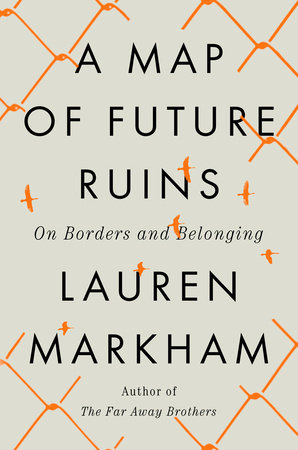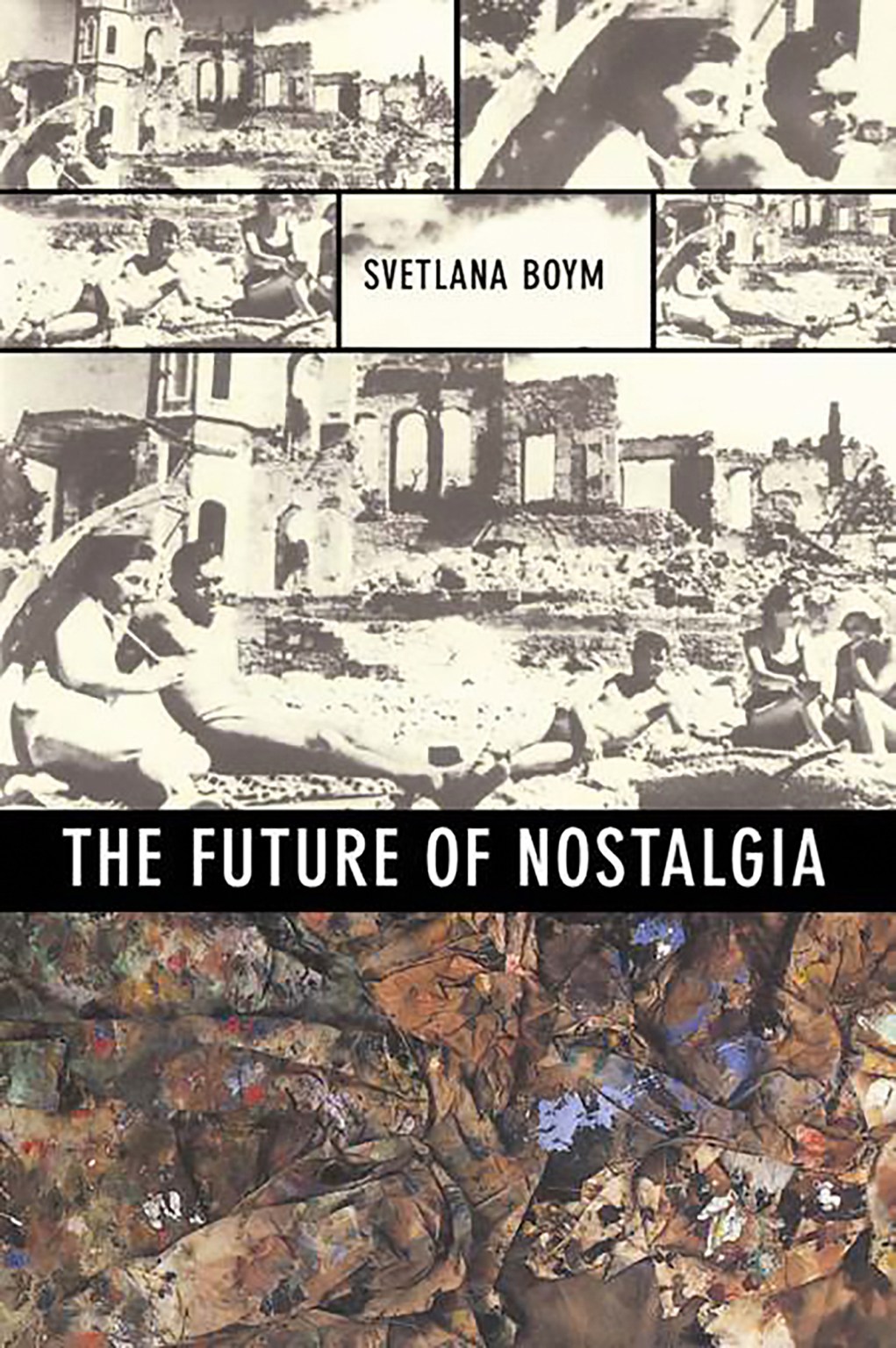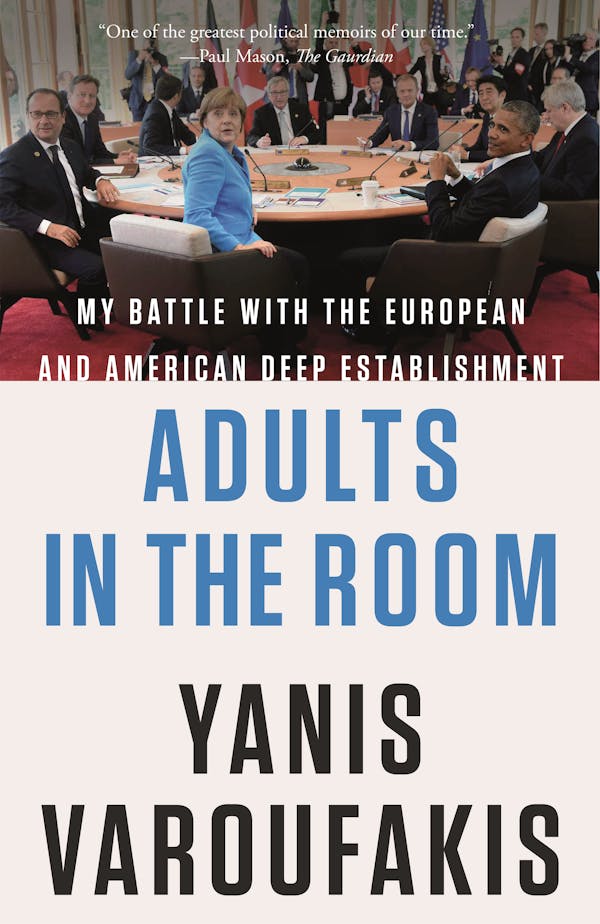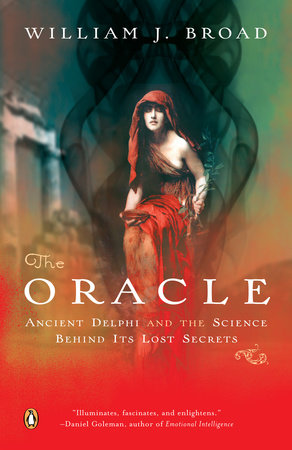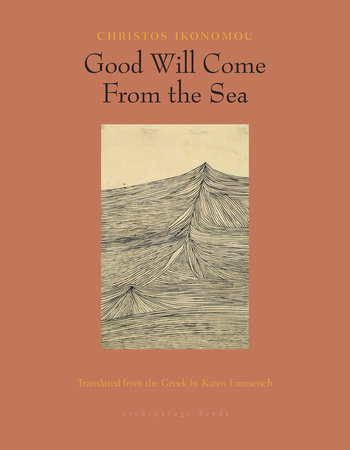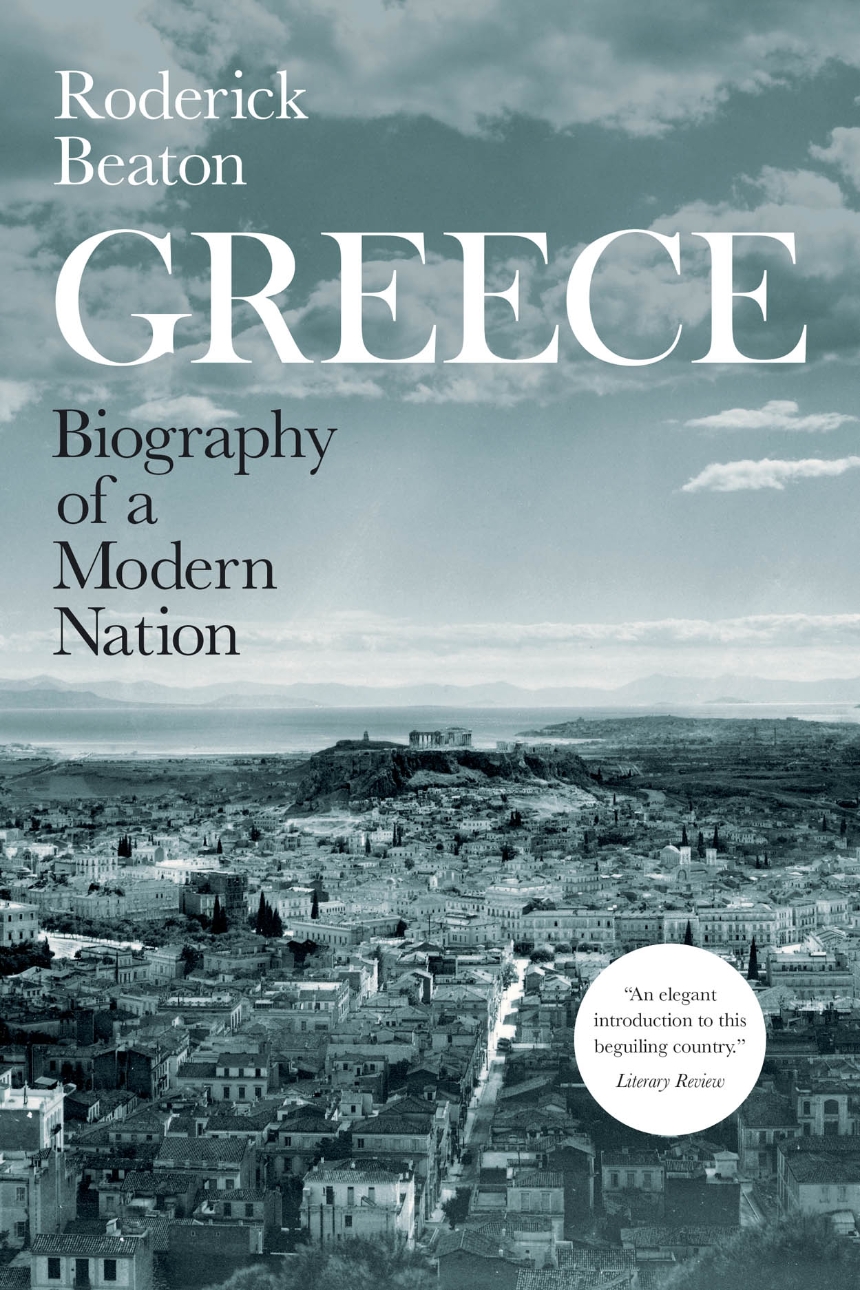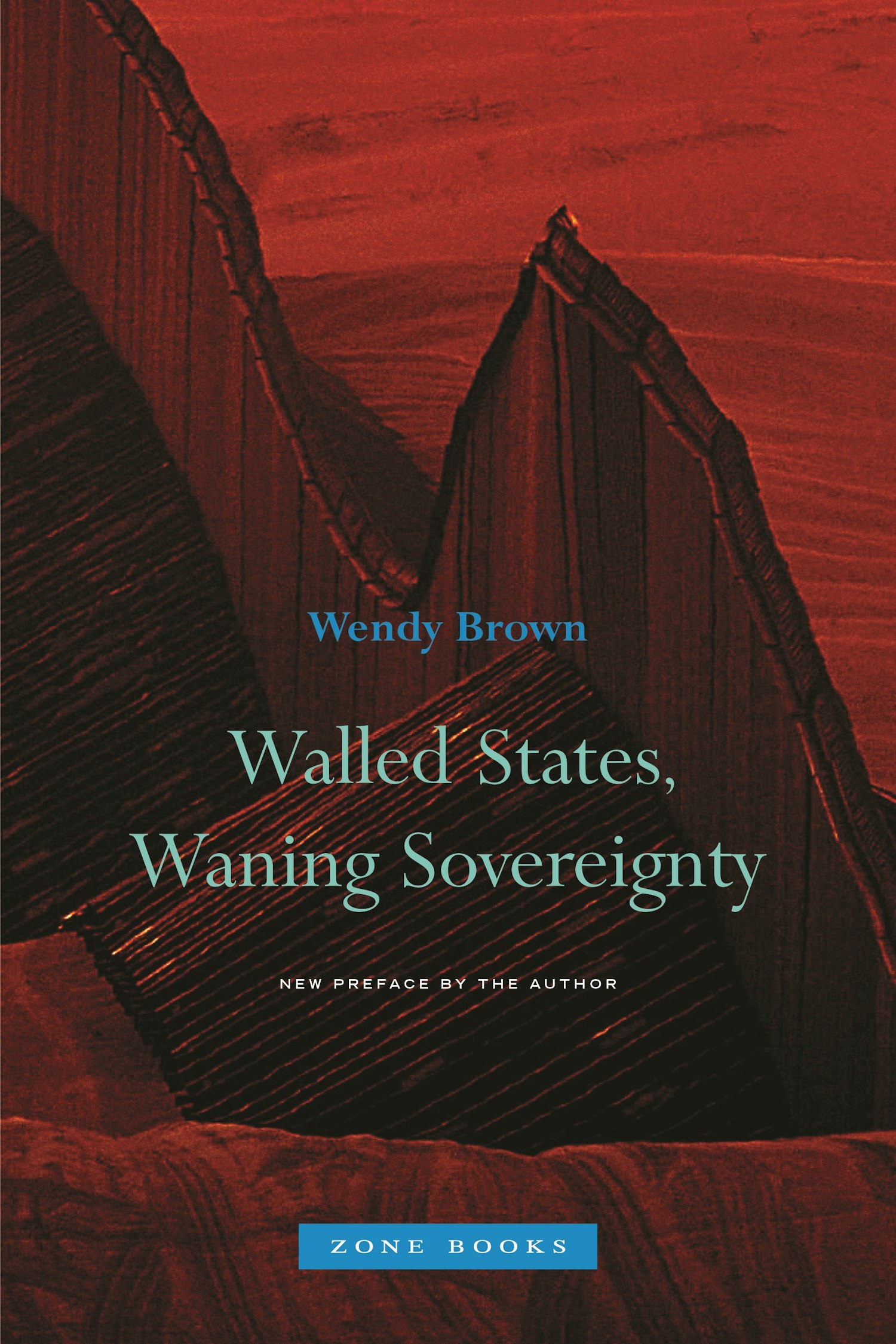My new book, A map of future ruins: on borders and belonging focuses on the story of the 2020 fire that destroyed Europe’s largest refugee camp on the Greek island of Lesbos, and the six young Afghans who were blamed despite little evidence against them. Part reportage on contemporary borders, part memoir of my own family’s migration story from Greece over a century ago, and part investigation into the mythologies of people on the move, this book delves deep into the ‘history. Many texts have guided and pushed my thinking throughout my journey.
The future of nostalgiaby Svetlana Boym
This 2001 treatise on the formation of nostalgia and its consequences proved essential throughout the writing process of A map of future ruins. Writer Aleksandar Hemon first suggested it to me when we shared the stage at a book event in Vancouver years ago. Back at the hotel, I stayed up late to read and reread an extract from an essay by A future of nostalgia which I found online. At the time, I was constantly thinking about writing A map of future ruins but I don’t know where or how to start. I knew it would be a book about migration. But I also had an instinct that it was a book about how we see and recount the past in light of the present, and how that determines the future. The late scholar Svetlana Boym explained everything to me.
“The nostalgia that interests me here,” she writes, “is not simply an individual illness but a symptom of our times, a historical emotion. » Boym offers a story of nostalgia, which many 17th-century Europeans thought was a curable disease. The book provides a framework for understanding what Boym sees as two different forms of nostalgia. People with thoughtful nostalgia looking at the past with a sometimes idealized desire, but with a simultaneous awareness of the most fictional elements of this remembered past. My interest in my own Greek heritage going back several generations falls into this category. Those with restorative nostalgia believing in a more perfect past to which society urgently needs to return – like the white nationalist groups growing in size and power in the United States, Greece and elsewhere. “Modern nostalgia,” writes Boym, “is the mourning of the impossibility of a mythical return, of the loss of an enchanted world with clear borders and values. »
Adults in the room: my fight against the European establishmentby Yanis Varoufakis
When the left-wing Syriza party took power in Greece in 2015, economist Yanis Varoufakis was named the country’s finance minister and helped lead the country into a game of chicken against the rest of the European Union. Relieve us from our unacceptable debtdeclared the new Greek administration, or we are outside. His 2018 book reads like a thriller and provides clear and maddening context for the endless debt cycle to which Greece is now attached. “Our country’s simulated fiscal drowning was celebrated as a sensible way to bring lost people back into the fold,” Varoufakis writes. He narrates his contemporary Greek tragedy in the first person, so we are well aware that this is just one man’s perspective on how it all happened.
Still, I was fascinated by the book and what it revealed about the debt crisis, Greece’s position within the larger European project, and the inner workings of the Eurozone. I convinced an economics-loving friend of mine to read it with me in spring 2020. He in turn recruited his college economics advisor to join us in a pandemic book club. We discussed Varoufakis’s showmanship (which charmed me and seemed appropriate given the larger theater in which he was performing) and the complexities of the European Union. Granted, my fellow book club members weren’t as convinced as I was of Varoufakis’ point of view, but we all thought it was an excellent read.
The oracleby William Broad
In ancient Greece, pilgrims flocked to the Oracle at Delphi to receive prophecies. Once a month, for nine months of the year, the priestess Pythia would enter a sacred chamber, inhale a mystical vapor from a cleft in the rock, receive a pilgrim’s question, and divine an answer via mystical communion with the god Apollo. Journalist William Broad writes in his 2007 book that evidence suggests that so many kings and military leaders sought advice there that the advice at Delphi “repeatedly changed the course of history.” (For example: the oracle told King Croesus that if he attacked Persia, he would destroy a powerful empire. This encouraged him to go to war, but the empire he destroyed was his own.)
The oracle shows how our narrative of the past is constantly changing, as is what we determine to be true. Delphi re-emerged in importance during the European spiritualist revivals of the 19th century. Once the site was rediscovered and excavated by the French at the beginning of the 20th century, archaeologists debunked the existence of any vapor rising from the earth. But in the 1990s, an archaeologist teamed up with a geologist to prove otherwise, once again shifting Delphi’s place in the historical and cultural imagination, from religious site to scam to historic site, even if it still remains full of mysticism and mystery.
Modern Greece: a cultural poeticsby Vangelis Calotychos
This 2004 text, suggested by a Greek activist working on behalf of refugees on Lesvos, introduced me to the idea that Greece is realizing a selective version of itself – Hellenism, therefore – for the rest of Europe and “the West,” clinging to this inordinate slice of its past to ensure continued inclusion, recognition, and relevance.
“The denigration of modern Greece, its material manifestation,” writes Vangelis Calotychos, a Greek scholar based at Columbia University, “is a byproduct of the attainment of the ideal of Greece.” The book is dense and demanding, using a multitude of modern “texts” – from the first map ever drawn of modern Greece in the late 18thth century by an exile named Rhigas Velestinlis (a story I write at length in my book, with great thanks to the ideas of Calotychos), to the poetry, to the political treatise – to trace the creation of modern Greece as an idea that was , in part, constructed by and for those living outside Greece, “who sought to integrate modern Greek history into the main narrative of European identity by alluding to the classical past and its ideals.” How, the book asks, might we look at the past differently? This is a question I wrestle with in my book, given how often our stories are shaped to justify certain elements of the present.
Goodwill will come from the seaby Christos Ikonomou, translated by Karen Emmerich
Sometimes fiction can be the most powerful chronicle of the near and distant past. Goodwill will come from the sea, first published in English in 2019, is a book of linked short stories set in the wake of the debt crisis on an unnamed island, where Athenians, no longer able to make ends meet in the city , performed a reverse migration. to try to save their lives and livelihoods. It reads like a chronicle of everyday life: people hanging out in a tavern, people sitting by the sea, people worrying about their finances. Ikonomou is a writer of deep interiority and nostalgia, who combines elevated lyricism with fervent realism.
“I don’t know which is worse,” thinks one of the characters in Ikonomou, “loving your country because it’s being ripped off, or hating it because you can’t do that anymore, and I think that now that the money is gone, we have to find something else to keep us together, but I don’t know what, I don’t see that there’s anything left, there’s nothing, nothing, nothing…” This book added a sense of depth and texture to the spinoff. of the debt crisis and its impact on Greeks – which would in turn impact Greece’s border policy. Today, right-wing leaders have capitalized on citizens’ suffering to turn them against refugees and justify increased border security and a violent, illegal regime that secretly sends refugees back to the sea.
Greece: biography of a modern nationby Roderick Beaton
Roderick Beaton’s 2019 book presents a remarkably readable (we’re talking page-turner here) history of Greece from the launch of the Greek nation-state at the turn of the 20th century to the present day. Beaton, a Briton, is clearly fascinated by Greece and writes vividly of its many years of modern struggle, from the Greco-Turkish War to the Nazi occupation to the dictatorship of Georgios Papadopoulos. But he also views the mythologies built around Greece with a healthy dose of skepticism, tracing both the purpose of these legends and their cost.
“We are so accustomed today,” writes Beaton, “to regarding ‘modern Greece’ as an emanation of ancient Greece that it can be difficult to realize that during the many centuries that separate us from classical antiquity, a no such feeling of affinity existed. among Greek speakers. Greece, like all nation-states, is above all an idea: it has been assigned a perimeter on the map.
Borderwall as architecture, edited by Ronald Raël
This 2017 book presents a simple and deliciously deviant conceit. As if responding to a U.S. government call for proposals for border wall designs, he offers ideas that serve a purpose other than division and force readers to think about the fictional nature of borders.
Edited and assembled, with numerous visuals, by architect Ronald Rael, this collection of anti-wall and anti-border designs — from a “Wallyball” court to a confessional via a lunch counter and a xylophone that can be played on all sides – is both playful and deadly serious. As ridiculous as some of these conceptions may seem, they are not that far from the truth. The summer I first reported on in Greece, the government proposed building a floating wall on the sea to prevent migrants from crossing.
Fortified States, Sovereignty in Declineby Wendy Brown
Researcher Wendy Brown’s book explores the unprecedented increase in border fortifications around the world – what they mean and what they portend.
She suggests that these walls not only serve to keep out migrants, but also signal a broader crisis of sovereignty within the nation-state in our globalized world. I first discovered his book while writing a story for Harper Magazine on a small, highly contested border wall between Arctic Norway and Russia. Sections of this story appear in A map of future ruins. I returned again and again to Brown’s work. “When will the new walls look more like the confining walls of a prison rather than the comforting walls of a home? she asks. “When did the fortress become a penitentiary?



